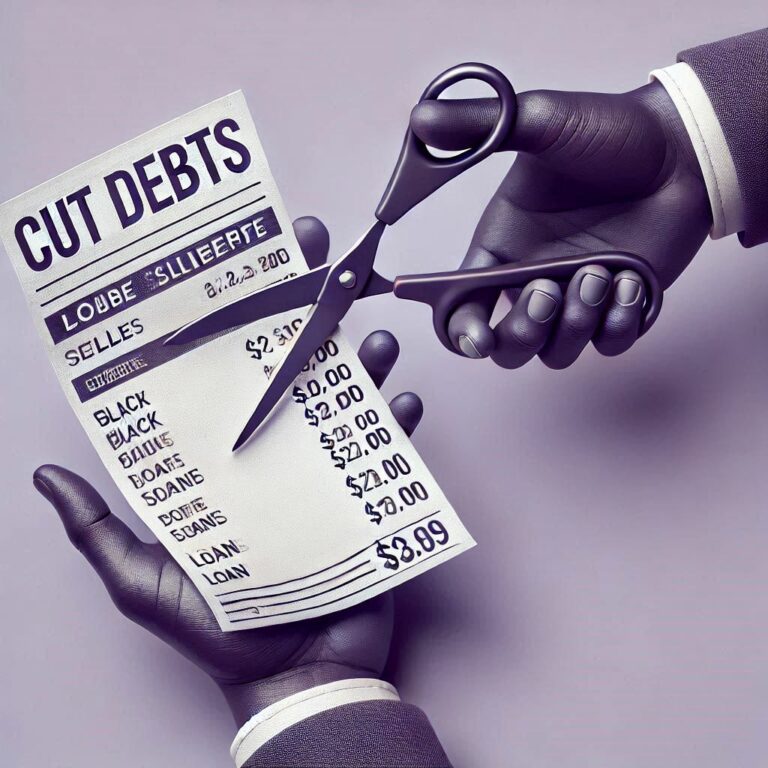7 Ways To Avoid Lifestyle Creep

Lifestyle creep happens when your increase in income slowly leads to new, often unnecessary, expenses. It’s sneaky because these changes often feel justified when your paycheck gets a boost. Suddenly, the things that were once luxuries become just part of your everyday life.
Inflation plays a quiet partner in this financial drama, whispering in your ear that things are just more expensive now. And that’s true, but lifestyle creep takes it a step further, encouraging a cycle of endless upgrades. You think you can afford more because, well, you’re earning more, but expenses can rise even faster if you’re not careful.
Psychologically, every time you earn more, there’s a feel-good factor that makes it easy to rationalize spending more. So how will you recognize that lifestyle creep is occurring?
One of the clearest signs of lifestyle creep is when your savings rate stalls despite earning more. As your income grows, it’s easy for spending to quietly expand, leaving little to no room for meaningful savings. Another indicator is when debt becomes a part of your financial routine—justifying credit card balances or loans for non-essential purchases with the idea that you’ll “pay it off later.” Finally, you may notice your budget feels tighter even with a higher income, as increased spending on discretionary items starts to crowd out your financial priorities. Recognizing these patterns early is key to regaining control over your finances.

Here’s a nugget of wisdom:
“It’s not your salary that makes you rich, it’s your spending habits.” – Charles A. Jaffe
This quote reminds us that maintaining financial stability isn’t about how much money rolls into your bank account each month, but what you choose to do with it. Keeping spending habits in check allows you to build wealth steadily, protecting against financial stress down the line.
I’ve seen how minor splurges can slowly carve away at those hard-earned dollars, and it becomes crucial to spot lifestyle creep early, put a leash on it, and stop it from having a real impact on your long-term financial health.
7 Ways to Keep Lifestyle Creep at Bay
- Set Clear Financial Goals: Setting clear financial goals is like having a road map for your money. It keeps you on track and helps you focus on what’s important. Revisit these goals regularly because when life changes, sometimes your goals need to, too.
- Express Gratitude: Taking a moment each day to express gratitude for what you have can shift your mindset from wanting more to appreciating what you already own. It’s amazing how feeling content with less can reduce the urge to spend unnecessarily.
- Automate Your Savings: this ensures that you prioritize financial health without thinking about it. Set it and forget it can be one of the best tools in your financial belt. It ensures that your savings grow without falling prey to impulsive purchases.
- Live by the One in, One out Rule: For every new item you buy, get rid of or donate an old one. This keeps you mindful about purchases and prevents unnecessary accumulation. It’s a great trick to keep things simple and your financial life under control. It also displays generosity and concern for the well being of others.
- Invest in Experiences rather than material possessions often leads to more meaningful happiness. Trips, concerts, or even a cooking class can create lasting memories without building clutter or expenses that continually grow.
- Avoid Inflation: Inflation’s tricky, but when you keep an eye on it and adjust your plan, it stops inflation from being the boss of your wallet. This way, your financial plans stay robust no matter what’s happening in the wider economy.
- Know you Net Worth: Keeping track of your net worth is like having a health check-up for your finances. Regularly monitoring where you stand financially makes it easier to make adjustments and stay on top of your game, ensuring you’re moving toward your financial goals.

A Personal Journey: Overcoming Lifestyle Creep
When I started making more money, the excitement nearly got the best of me. With every paycheck increase, the temptation to splurge on bigger and better electronics, a new tv here a tablet there. It was like having a little voice in my head constantly whispering, ‘Go ahead, you can afford it now.’
Each time that I got a promotion I moved to a new apartment which was also further away from my job. So not only was my rent increasing but wear and tear on my car increased and so did the amount I spent on gas. Thankfully I was only getting promoted every few years otherwise things could have gotten out of control!
Self-reflection was a game-changer for me. I had to question whether I really needed to move so often and if the things that I was purchasing were going to good use. Facing these truths wasn’t easy, but it opened my eyes to the need for a solid budgeting plan, one that I could realistically stick to.
Working at a financial institution played a pivotal role in my turnaround. Learning about budgeting strategies and how to handle credit quipped me with the tools I needed to make smarter money choices. I was even able to purchase my own vehicle without a cosigner. I purchased that vehicle in 2014 and 10 years later that same vehicle is still going strong.
My success didn’t come overnight. It was a gradual process of trial and error, finding what worked best for my lifestyle. By dialing back on unnecessary spending and setting savings goals, I slowly found my footing and began to rebuild my financial stability.

Biblical Insights: Wisdom from the Old Testament
Reflecting on my own journey, I’ve seen how financial growth can bring both opportunities and challenges. While it’s exciting to experience greater financial freedom, I’ve also noticed how easily unchecked spending habits or shifting priorities can lead to lifestyle creep. In these moments, I’ve found myself turning to scripture for wisdom and guidance. The story of Solomon, one of the wealthiest and wisest individuals in the Bible, offers profound lessons about managing wealth, staying grounded, and aligning our resources with God’s purpose. Let’s explore what we can learn from his life to navigate our financial journeys with faith and intentionality.
Seek Wisdom First: Solomon’s request for wisdom over wealth shows the importance of prioritizing God’s guidance. When we seek wisdom first, God often provides the resources needed to fulfill His purpose. As Solomon wrote, “Wisdom is more precious than rubies” (Proverbs 3:15). Praying for discernment and studying God’s Word equips us to steward wealth wisely.
Guard Your Heart: Solomon’s wealth and indulgence eventually led to idolatry, illustrating how unchecked desires can turn our hearts away from God (1 Kings 11:1-6). To avoid lifestyle creep, we must assess whether our financial decisions align with God’s will. “Above all else, guard your heart” (Proverbs 4:23) reminds us to focus on faith and purpose over materialism.
Trust in God, Not Wealth: Despite his riches, Solomon acknowledged that wealth alone cannot bring satisfaction. “Whoever loves money never has enough” (Ecclesiastes 5:10). Wealth is a tool, not a source of security or fulfillment. By practicing gratitude and generosity, we shift our trust from material possessions to God’s provision.
Live Within Boundaries: God’s guidelines for kings in Deuteronomy 17 warned against excess, yet Solomon’s overindulgence led to turmoil. Setting godly financial boundaries helps us stay grounded and avoid unnecessary debt or greed. “Better a little with the fear of the Lord than great wealth with turmoil” (Proverbs 15:16).
Reflect on Eternal Impact: Solomon ultimately realized that wealth without God is meaningless (Ecclesiastes 2:10-11). Instead of chasing material success, focus on building a spiritual legacy. “Do not store up for yourselves treasures on earth… But store up for yourselves treasures in heaven” (Matthew 6:19-20). Use your resources to bless others and further God’s kingdom.
So what should you do if you begin feeling like your expenses are spiraling out of control? Lifestyle creep might be holding you back from financial freedom. If you’ve ever upgraded your lifestyle only to feel the weight of growing debt, it’s time to take charge.
The Debt Defeated course is your step-by-step guide to breaking free from the cycle of overspending and reclaiming your finances. Learn how to recognize and combat lifestyle creep, create a sustainable budget, and build a future where your money works for you—not the other way around.
Grace and Peace to you!
Disclaimer:
The information provided in this post is based on my experience and research in personal finance. While I strive to share accurate and helpful insights, this content is for informational purposes only and should not be considered professional financial advice. Please consult a qualified financial advisor for advice tailored to your specific situation.




